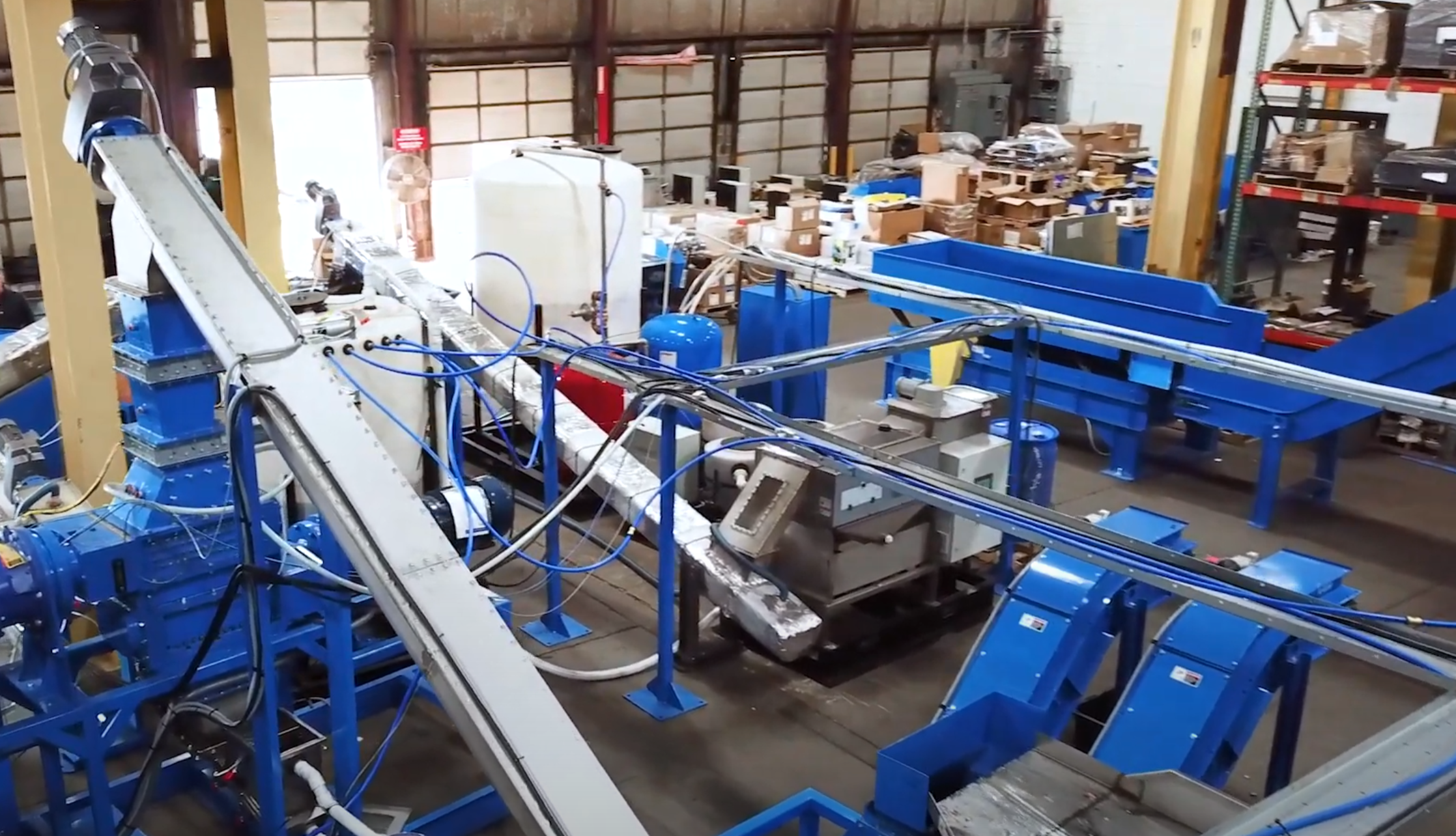
LithiBatt designs and builds systems that can process the largest EV battery packs to the smallest watch batteries. LithiBatt systems can be ordered individually or as full EV to PCAM turnkey wet or dry systems although wet LI-ION recycling offers many advantages.
Watch on YouTubeOur systems can be ordered individually or as full EV to pCAM turnkey wet or dry systems although wet Li-ION recycling offers many advantages. LithiBatt’s systems include some unique, proprietary design features based on the company’s decades of experience recycling various types of products.
At each individual processing method, there is an opportunity for profit. Each processing method works as its own entity and a company may choose to perform any or all. The more sophisticated the process, the more demand there is for it.
Shreds the batteries in inert atmosphere and water, and is only needed for EV and larger size packs.
Further reduces the material to smaller, more recyclable sizes with black mass separation.
Final reduction to 10 mesh with remnant black mass separation.
Lithium, Cobalt, and Nickel separation producing pCAM from black mass.
For customers that want to process LI-ION EV batteries to final stage of regeneration LithiBatt partners with Green LI-ION and it’s proprietary technologies for systems that separate lithium, cobalt, manganese, and PCAM.
With primary, secondary, and downstream equipment, Li-ion batteries of all sizes and chemistries can be quickly and profitably reduced into valuable, reusable, or saleable materials
Integrating complementary recycling technologies to maximize the value of recoverable materials and reduce operational costs.
A growing market for LI-ion batteries and the increasing value for recycled materials, spur the development of regional facilities.
Black mass after filtration to pCAM cam go right back into new battery production or into new products and applications.
Our technology lowers the cost of producing new batteries and reduces emissions related to battery raw material logistics.